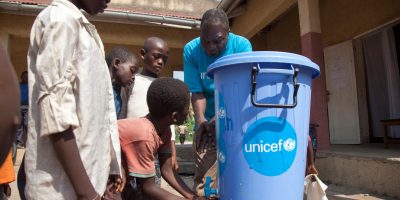The SSHAP’s mission is increased mobilisation and integration of social and anthropological data during humanitarian crises and public health emergencies, and the strengthening of local capacities in the use of social science data in preparedness and response. This is achieved by facilitating rapid access to evidence on socio-cultural drivers and dimensions; expanding south-south networking and collaboration; and strengthening capacities of local social science researchers and networks. This blog reviews progress so far, and outlines our plans for the future, focusing especially on rapid access to evidence.
This year has been instrumental to expand the reach, analytical capacity and increased donor and partner commitment for SSHAP. We are particularly thankful to the United States Agency for International Development and The Office of U.S. Foreign Disaster Assistance; The Bill and Melinda Gates Foundation; The Wellcome Trust and the U.K. Department for International Development for supporting the expansion of SSHAP, and jointly with UNICEF, WHO and IFRC’s Risk Communication and Community Engagement teams, for commissioning social science evidence and applying it to address on-going public health emergencies and humanitarian crises.
In order to generate rapid access to evidence, the SSHAP uses a three-pronged approach to the extraction, analysis and application of lessons from social science and anthropology to health outbreaks and wider humanitarian situations, including:
- Conduct detailed evidence reviews to synthesize lessons learned about social science considerations needed to support disease outbreak response and recovery efforts. To date, this type of work has been completed for Ebola and Cholera, with Influenza and Rift Valley Fever soon to be completed. In the coming years we will develop targeted resources for applying social science lessons learned to the control of epidemic-prone pathogens.
- Conduct rapid evidence synthesis with our core partner Anthrologica, that covers a range of social, cultural, political and economic factors impacting health outbreaks. Currently, for instance, these evidence reviews are used to inform the on-going Ebola response in DRC. Given the outbreak in North Kivu continues to spread, SSHAP will continue to develop rapid evidence synthesis to inform preparedness efforts in countries bordering and at-risk from the current Ebola outbreak. The SSHAP is also supporting the on-going Venezuelan migration crisis. An evidence review on xenophobia and discrimination faced by migrant families and their children in host communities in Ecuador has been disseminated and used to support UNICEF’s response and implementation of the Children Uprooted Campaign. A similar type of review has supported UNICEF’s and partners’ response to the Rohingya crisis in Bangladesh.
- Leverage IDS’s extensive research networks and capacity to provide access to relevant data, knowledge and evidence on the platform’s website. Research studies, case studies, strategic documents, amongst others, speak to current humanitarian crisis and public health emergencies.
Upcoming blogs and newsletters in 2019 will provide additional updates and resources. We look forward to expanding the use of the platform resources to support humanitarian preparedness and response activities.



